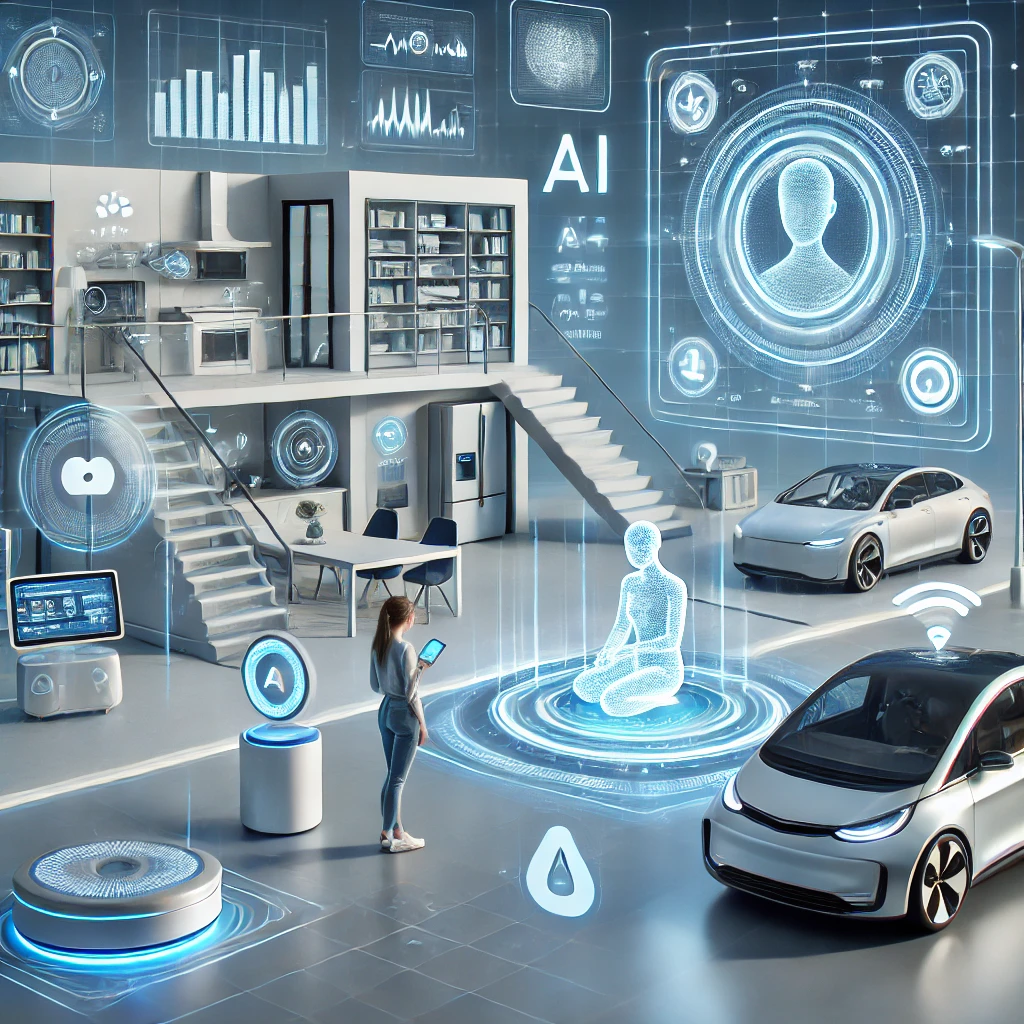In 2024, the landscape of artificial intelligence (AI) and technology is more dynamic and transformative than ever before. From the way we live our daily lives to the advancements in healthcare, industry, and beyond, AI is not just a tool but a driving force that is reshaping the future. This article delves deep into the latest AI and tech innovations that are defining our era, exploring their applications, implications, and the profound impact they are having across various domains.
AI in Everyday Life
AI has seamlessly integrated into our daily routines, often in ways that we barely notice. Smart home technology has evolved beyond simple automation to become an intuitive, almost invisible presence in our homes. Advanced AI-powered systems manage everything from security and energy consumption to personalized lighting and entertainment experiences.
AI personal assistants like ChatGPT have become more conversational and capable, managing schedules, answering complex queries, and even offering emotional support. Meanwhile, wearable technology has taken a leap forward, with AI-enhanced devices that monitor health in real-time, offering personalized insights and recommendations. These wearables are no longer just passive trackers; they are proactive tools that help us make informed decisions about our health and well-being.
AI in Healthcare
The healthcare industry is one of the most significant beneficiaries of AI advancements. In 2024, AI diagnostics and treatment have reached new heights, with machine learning algorithms capable of diagnosing diseases with unprecedented accuracy. AI-powered diagnostic tools are now standard in many hospitals, helping doctors detect conditions early and provide tailored treatment plans.
Robotic surgery, another AI-driven innovation, has become more refined, allowing for minimally invasive procedures with greater precision and reduced recovery times. AI is also playing a crucial role in mental health, where AI-based applications provide therapy and support, offering a scalable solution to the growing mental health crisis.
AI in Business and Industry
AI is transforming industries across the board, from finance to supply chain management. In the financial sector, AI algorithms are now central to operations, managing everything from fraud detection to personalized financial advice. AI’s ability to analyze vast amounts of data in real-time is helping companies make better, faster decisions, significantly improving efficiency and customer satisfaction.
Supply chain and logistics have been revolutionized by AI as well. Predictive analytics and real-time monitoring powered by AI ensure that supply chains are more resilient and efficient. Autonomous delivery systems, including drones and self-driving trucks, are no longer just concepts but are being implemented in various industries, drastically reducing delivery times and costs.
Cutting-Edge Technologies Empowered by AI
Beyond its immediate applications, AI is also pushing the boundaries of what’s possible in other emerging technologies. Quantum computing is one such area where AI is making significant strides. AI algorithms are helping to unlock the potential of quantum computers, enabling them to solve complex problems that were previously beyond the reach of classical computers.
In biotechnology, AI is accelerating breakthroughs in gene editing and drug discovery. By analyzing biological data, AI is helping scientists develop new treatments faster and with greater precision, paving the way for personalized medicine.
Autonomous vehicles, another frontier of AI, are becoming more advanced, with AI driving improvements in safety and efficiency. While fully autonomous cars are still in the testing phase, 2024 has seen significant progress in their development, with AI systems capable of making split-second decisions that enhance road safety.
Ethical and Societal Implications
With these advancements come significant ethical considerations. Bias in AI remains a major challenge, as AI systems often reflect the biases present in the data they are trained on. Addressing this issue is critical to ensuring that AI benefits all sectors of society equally.
Privacy concerns are also at the forefront, particularly as AI systems become more integrated into our daily lives. The trade-off between convenience and privacy is a delicate balance that requires careful consideration and regulation.
The impact of AI on employment is another critical issue. While AI creates new opportunities, it also poses a threat to jobs that can be automated. The challenge for society is to manage this transition, ensuring that workers are retrained and that the benefits of AI are widely shared.
The Future of AI and Technology
Looking ahead, the future of AI and technology is both exciting and uncertain. AI is not just reshaping industries; it is redefining what it means to be human. In creative fields like art, music, and literature, AI is pushing the boundaries of creativity, raising questions about authorship and the nature of creativity itself.
Governments and international bodies are beginning to recognize the need for AI governance and regulation, developing frameworks to ensure that AI is developed and deployed responsibly. The balance between fostering innovation and ensuring that AI is used ethically will be one of the defining challenges of our time.
Finally, AI is playing an increasingly important role in addressing global challenges. From climate change to healthcare accessibility, AI is being harnessed to tackle some of the most pressing issues facing humanity. As we move forward, the hope is that AI will continue to be a force for good, helping us solve problems that have long seemed intractable.
Conclusion
The rapid pace of AI and tech innovations in 2024 shows no signs of slowing down. As we continue to explore the potential of AI, it is crucial to remain mindful of the ethical and societal implications. The future of AI is not just about technology; it’s about shaping a world that is more equitable, sustainable, and connected. The choices we make today will determine how AI impacts our world tomorrow.
